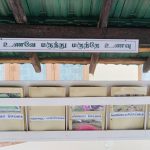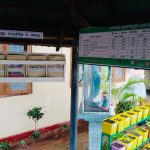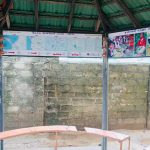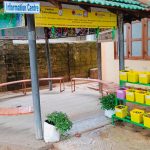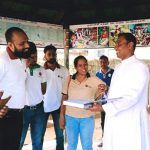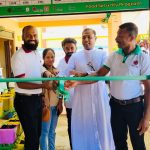Caritas Sri Lanka network started to implement a five-year project titled “Improving Rural Livelihood, Enhancing Food Security, Building Climate Resilience in Sri Lanka” with the support of Caritas Norway/NORAD from January 2023 to December 2027 by aiming to promote sustainable agriculture to ensure food security for poor and marginalized people through create food access, availability, utilization, and stability under the guidance of Rev. Fr. Luke Nelson Perera, the National Director of Caritas Sri Lanka SEDEC. Caritas “Valvuthayam” Mannar is a Catholic Socioeconomic & Community Development Centre of the Diocese of Mannar. It is operating in collaboration with Caritas Sri Lanka- SEDEC dedicated to empowering the social and economic well-being of the poor and marginalized people in Sri Lanka. Through this project, 400 farmers, 500 school children, 200 preschool mothers, 50 youth, and 50 Persons with Disabilities (PWDs) were selected to empower in Mannar DC in 2023.
The DC Level Information Center was officially inaugurated by Rev. Fr. Arulraj Croos, Director of Caritas Valvuthayam Mannar on 15th May 2024 in a ceremony that marked a significant milestone for the community. The primary focus of the diocesan-level information center is to enhance agricultural knowledge among local farmers and community members. Detailed information on food security projects helps beneficiaries understand the larger context of their agricultural practices and how they contribute to community well-being. This includes insights into nutrition, food production, and distribution systems. A vast collection of brochures, manuals, and digital resources covering various aspects of agriculture and food security is also available. The center also provides updates and information on various other projects by Caritas Valvuthayam, ensuring that beneficiaries are well-informed about the different avenues of support and development available to them.
The diocesan-level information center aligns with global sustainable development goals by promoting practices that ensure long-term food security and environmental health. The center encourages sustainable farming practices, such as organic farming and water conservation, that reduce environmental impact. It involves the local community in decision-making processes and project implementations to ensure that the solutions are culturally and contextually appropriate. By keeping the community updated with the latest research and innovations in agriculture, the center helps them adapt to changing climatic and economic conditions.
The establishment of the diocesan-level information center has had a profound impact on the local community. Farmers who previously struggled with low yields and poor soil health now have the knowledge and resources to transform their farming practices. This not only improves their food security but also contributes to the overall economic development of the region. Moreover, the center fosters a sense of community and collaboration. Farmers and beneficiaries frequently share their experiences and solutions, creating a supportive network that enhances collective resilience against agricultural challenges.
In conclusion, the diocesan-level information center in the Food Security project, as part of the Caritas, is a pivotal initiative that empowers local communities through knowledge and resources. As beneficiaries continue to visit and utilize the center, the ripple effects of this project will undoubtedly lead to a more knowledgeable, self-sufficient, and resilient community.


